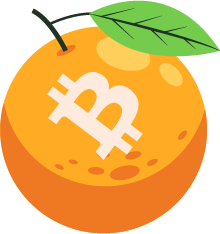Stop overpaying - start transferring money with Ogvio. Sign up, invite friends & grab Rewards now! 🎁
The market panicked. Did you?
Plus: Who gets your token - SEC or CFTC? |
|
|
GM. We stirred the news into a blender, added a shot of sarcasm, and voilà - your daily crypto smoothie is served. ⚖️ New crypto enforcement era. 🍋 News drops: Shaq settles lawsuit over FTX promo, Hong Kong's trying to fight money laundering through crypto + more |
|
🍍 Market flavor today | ||||||||||||||||||||||||||||||||||||||||||||
| ||||||||||||||||||||||||||||||||||||||||||||
I wanna pull up a quote from Monday’s newsletter, where I listed the big dates to keep an eye on this week:
This was supposed to be a joke. But if you look at the charts today… nobody’s laughing. What happened? Just like we mentioned yesterday, there were rumors that Israel might launch an attack on Iran. Well, turns out those weren’t just rumors - they actually did it. And the impact was immediate: since Iran is a major global oil supplier, oil prices exploded - the biggest increase in over three years.
When oil gets expensive, so does basically everything else - from transportation to manufacturing - which can push overall inflation higher. That makes life harder for central banks. If inflation stays high, they might delay interest rate cuts or even consider tightening again = economic uncertainty. So, investors ran into safety: they pulled money out of volatile markets like crypto and piled into more stable assets like gold, US Treasuries, and the US dollar. And what followed wasn’t pretty:
Yeah, Friday-the-13th-kinda spooky. But there might be a silver lining. According to CryptoQuant’s Amr Taha, this kind of panic selling, while brutal, often shows up near market bottoms. Here's why:
So, things look rough right now. But just maybe... the pain could be a setup before the comeback. | ||||||||||||||||||||||||||||||||||||||||||||
|
🥝 Memecoin harvest | ||||||||||||||||||||
Nothing says “healthy economy” like a cat token up 300% overnight 🐈 | ||||||||||||||||||||
| ||||||||||||||||||||
Check out these memecoins and plenty more here. |
|
🤨 Pro-crypto ≠ pro-crime | |||||||||||||||
|
When Trump took office, we started seeing the same headline every 3-5 business days: "Case against <insert crypto company name> dismissed." That's because before this, under Biden, the go-to strategy for handling crypto was regulation by enforcement - especially from the SEC. In other words, instead of making new rules, they sued companies and figured the rest out in court. Now, though, with a more crypto-friendly administration in charge, a lot of those cases are getting thrown out the window. "Sooo... we're entering crypto's wild west era, where anything goes and outlaws thrive? 😈" - You, maybe. Hold your horses, partner 🤠
CFTC acting chair Caroline Pham says that just because the government supports innovation, doesn’t mean fraud is suddenly okay. So, while they're not trying to criminalize crypto as a concept, they won't tolerate "lying, cheating, and stealing." Doesn’t matter who’s president. What might sound interesting is that these remarks came from the CFTC - not the SEC, even though the SEC was usually the one handling most crypto cases. So what’s the CFTC doing here?
Thing is, crypto regulation has been a mess for a while now. Both the SEC and the CFTC have claimed authority over crypto in the past - even though they oversee very different things:
And where does crypto fit in? Well… that’s the messy part. The law still hasn’t really decided.
That's what lawmakers are trying to fix with bills like the CLARITY Act, which aims to finally draw a clean line between what falls under the SEC’s authority and what belongs to the CFTC. (It’s already made it through both the House Agriculture Committee and the Financial Services Committee. Next up: a full vote in the House.) This bill would introduce a new category: digital commodities. Here’s how it'd work: 👉 If a token is decentralized - meaning no single group controls it or is responsible for making it grow - it’d be treated as a digital commodity, and regulated by the CFTC. 👉 If a token is tied to a centralized project or organization, especially one that’s promoting it and raising money with promises of profit, it would likely be a security. So, SEC territory. And no, calling something “decentralized” doesn’t automatically get it off the hook. Regulators are looking at how a project actually works, not just what it claims to be. Just like Pham said - being friendly to innovation doesn’t mean turning a blind eye to fraud. If a project is lying or a scam, it'll still be held accountable.
| |||||||||||||||
|
🍋 News drops🥊 Kraken vs. Bybit: who does it better? We put them head-to-head so you don’t have to guess. 🇨🇿 The Czech government sold a huge chunk of Bitcoin, and the opposition party isn’t happy about it. They wanna know who approved the sale, how it all went down, and they're calling for a debate in parliament. 🗑️ The SEC scrapped 14 rule ideas from the Gensler days. One of them would’ve changed what counts as a securities exchange. 🏀 Shaq agreed to pay $1.8M to settle a lawsuit over promoting FTX back in the day. The money will help cover legal fees and pay back those who used FTX or held its token. 🔎 Hong Kong is building a tool to track suspicious crypto transactions. It’s part of their plan to stop money laundering through crypto. |
|
🍌 Juicy memes
|










































